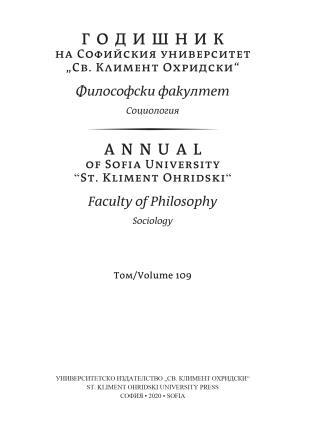„Човешкият капитал“, училищните реформи и възпроизводство на неравенствата
“Human capital”, educational reforms and the reproduction of inequalities
Author(s): Liliana DeyanovaSubject(s): Social Sciences, Sociology, History and theory of sociology, Social differentiation, Sociology of the arts, business, education
Published by: Софийски университет »Св. Климент Охридски«
Keywords: inequality; education; human capital
Summary/Abstract: The goal of the article is to understand a series of reforms in the so-called European Education Area and the respective national policies harmonized with them, chiefly those that concern changes in high schools (considered in the Preschool and School Education Act as of 2016, truly radical ones). On the basis of an archive created within the framework of the collective study “Educational inequalities and social chances – strategic goals of reform in Bulgarian high school education”, the article describes the chances in the field of education, the loss of its relative autonomy, its subjection to diverse institutionalized forms of competition that turn the school into a constellation of indicators and cause sustainable social inequalities. The symbolic violence is also problematized of the funding policies of ‘improving the human capital’ that reduce human potential to the production of value controlled by indicators of achievement. Different notions are discussed of ‘human capital’ and return of investment in quality education – a condition for the production of human capital. The central role in explaining the problematics of human capital belongs to the analysis of ‘the American school of the theory of human capital’ by Michel Foucault in “The Birth of Biopolitics” that traces the link between this theory and the essence of neoliberal change.
Journal: Годишник на Софийския университет „Св. Климент Охридски“. Философски факултет. Социология
- Issue Year: 109/2020
- Issue No: 1
- Page Range: 37-59
- Page Count: 23
- Language: Bulgarian

